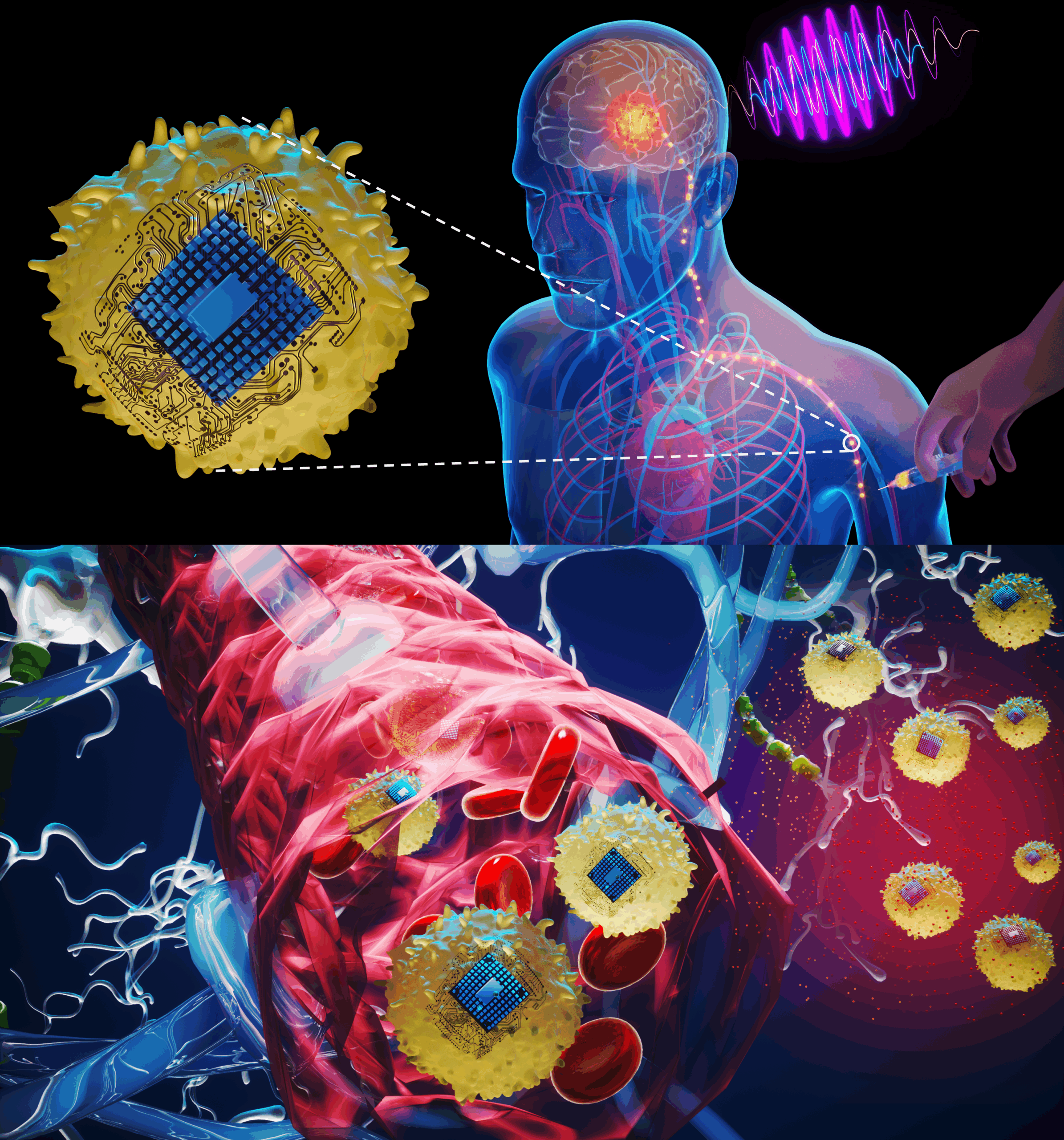Revolutionizing Deep Brain Stimulation with Surgery-Free Bioelectronic Nanoimplants

Electronic implants have long been critical tools in healthcare, enabling life-saving diagnostics and treatments. Until now, surgical implantation has been the only viable method for deploying these devices—a major limitation that restricts accessibility, increases risk, and drives up cost.
To overcome this barrier, Dr. Deblina Sarkar and her team have developed a paradigm-shifting technology: sub-cellular-sized, free-floating, remotely controlled nanoelectronic devices that can be introduced into the bloodstream. These advanced devices navigate the body’s internal highways—the circulatory system—and self-implant in targeted regions, completely bypassing the need for surgery.
To achieve this functionality, the team created unique hybrids of these nanoelectronics with biological cells, combining the programmable versatility and complexity of Very-Large-Scale-Integration (VLSI) of compatible nanotechnology with the biological transport and targeting prowess of living cells.
In a groundbreaking demonstration, they unveiled the first nanodevice capable of crossing the blood-brain barrier, opening up unprecedented possibilities for brain-targeted therapies—without disrupting the skull.
This technology lays the foundation for a remarkable future of smart computers capable of intelligent sensing and localized treatment. These devices will travel through the bloodstream, reaching every nook and cranny of the body to revolutionize healthcare.

Autonomous and Non-surgical Brain Implants
Read the full article in the November 5, 2025 issue of Nature Biotechnology.
MIT video release : https://www.youtube.com/watch?v=dDcgLM6Glg4


